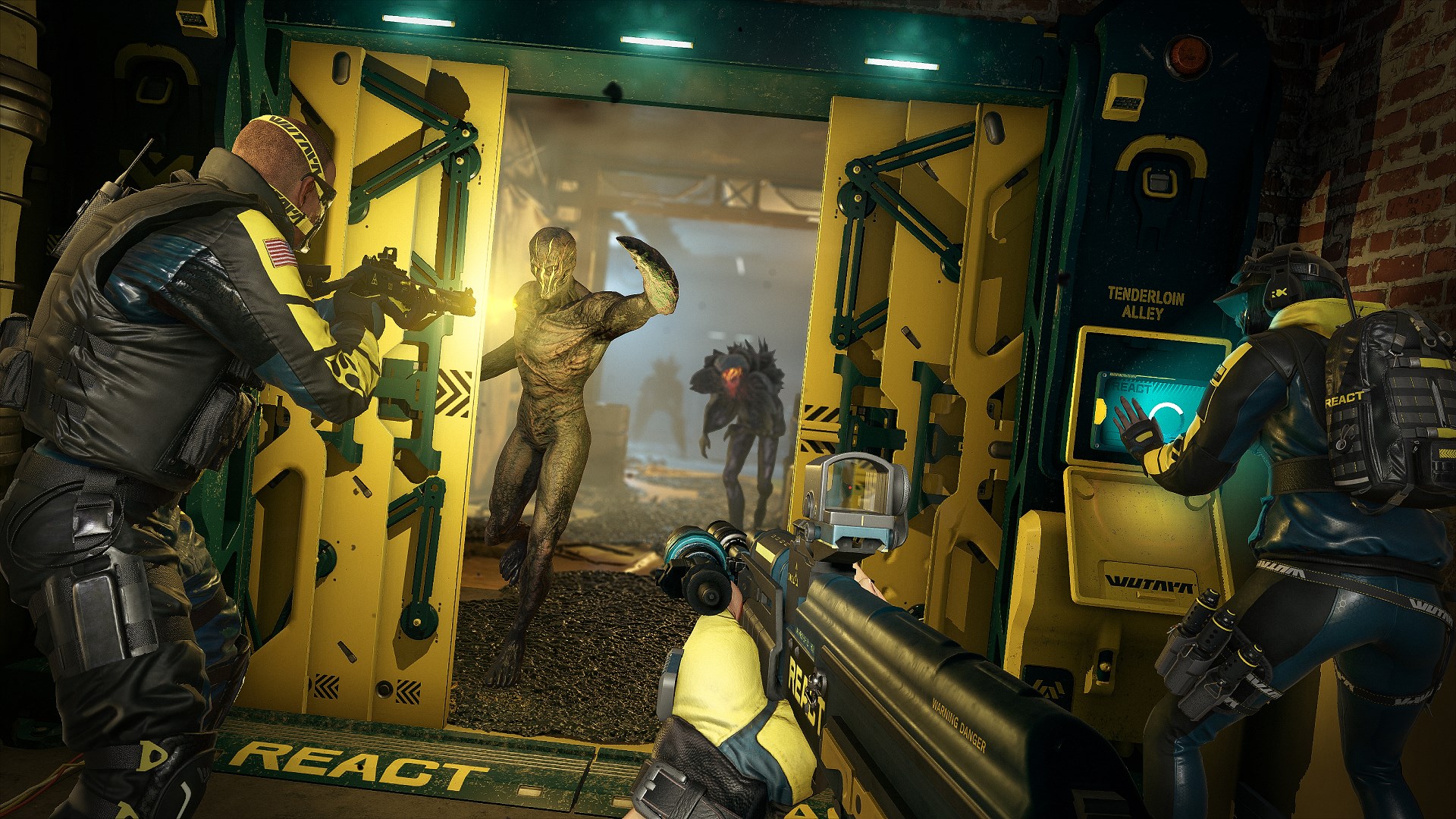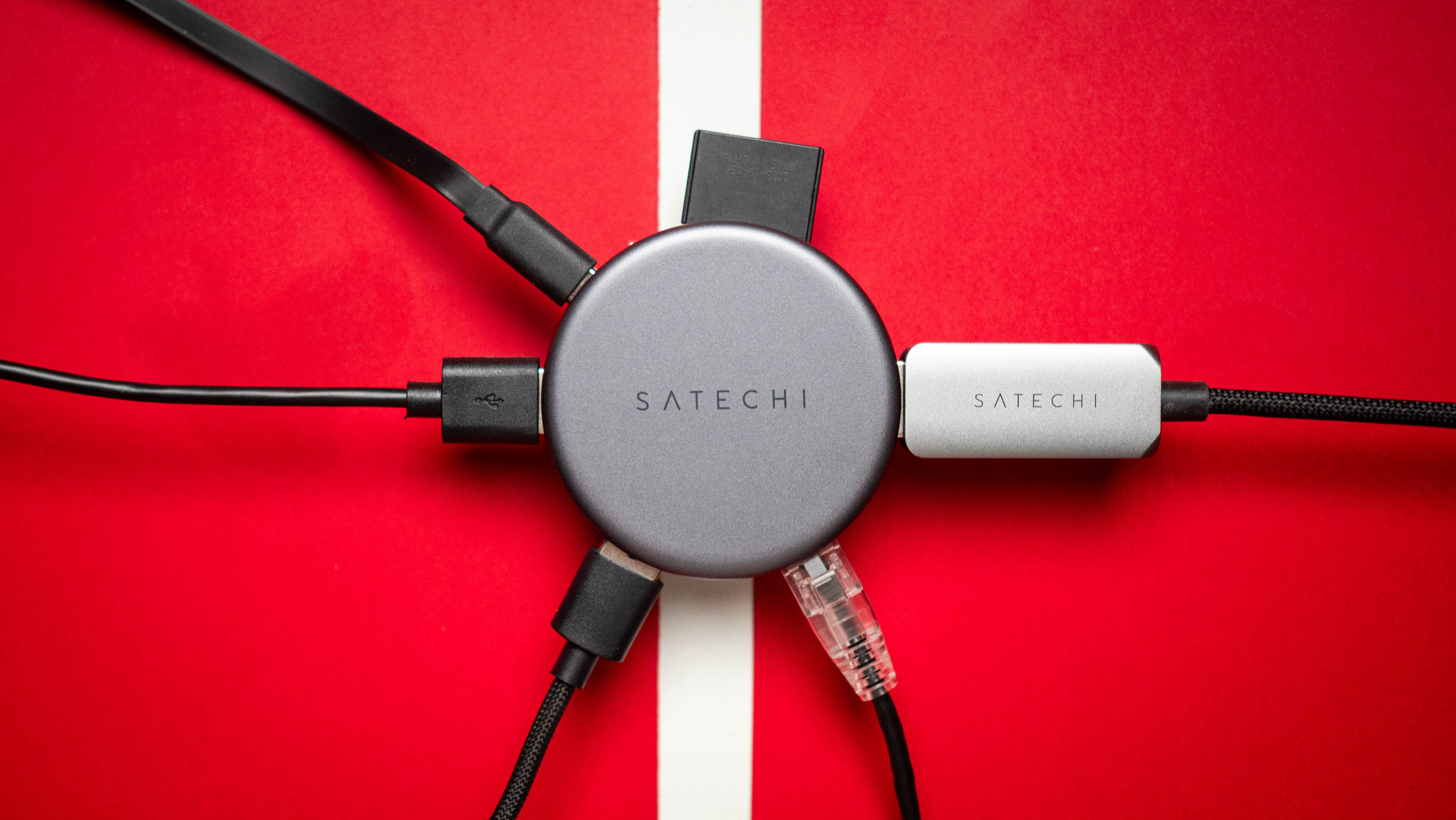Android Central Verdict
Bottom line: Rainbow Six Extraction on Stadia provides gripping action with some smart twists, but wears out its welcome fast with a lack of variety and a necessity for having a pre-made group.
Pros
- +
Stealthy encounters and frantic, explosive action are fun
- +
Smart method of getting players to try different characters
- +
Great variety of weapons, gear, and abilities that are useful
Cons
- -
Lack of variety in mission types
- -
Difficulty selection for missions only available for pre-made teams
- -
Noticeable jittering with movement
Why you can trust Android Central
Tom Clancy's Rainbow Six Extraction is a first-person shooter where up to three players work together to defeat alien-like parasites and save the world. It's based on a limited-time mode that appeared in the Rainbow Six Siege, Ubisoft's competitive multiplayer game, back in 2018.
Now it has been fleshed out into its own game while retaining most of the Rainbow Six Siege DNA. It takes a lot of familiar aspects from weapons, abilities, and characters (called Operators) into a player versus environment (PvE) mode that supports cross-platform play and saves between Stadia, PC, and consoles. While Rainbow Six Extraction presents some fresh ideas for cooperative gameplay, it fizzles out a lot sooner than expected.
Rainbow Six Extraction: Gameplay, story, and presentation
The game has more of a premise than an actual story. The Arcaean alien parasites show up, raise hell in four distinct location across the U.S., and you need to stop them. Most of the highs and lows players will feel are from tense gameplay moments.
| Category | Rainbow Six Extraction |
|---|---|
| Title | Rainbow Six Extraction |
| Developer | Ubisoft |
| Publisher | Ubisoft |
| Genre | Shooter, Action |
| Version Reviewed | Stadia |
| Stadia Pro? | No |
| Players | Single-player, 2-3 players online co-op multiplayer |
| Cross-Play | Yes |
| Cross-Save | Yes |
| Release Date | Jan. 20, 2022 |
| Launch Price | $40 |
I did not mind the lack of story, though I did not really care about these characters as someone who did not play much of Rainbow Six Siege post-launch. However, as you can expect from a spinoff, Rainbow Six Extraction's gameplay is very similar to Rainbow Six Siege. Players can still lean left and right to peek around corners, set up giant steel barricades to reinforce walls, and there is no dedicated jump button. The biggest difference is that there is no rappelling, as the maps contain much smaller buildings and are not built for the need to scale multiple floors. You're also not fighting human soldiers hiding in corners. Instead, you're fighting Arcaeans, who can pop out at you at any time.
The game has a somewhat rigid structure for its missions, or incursions, in that you will be following the same path regardless of map with some differing objectives. Each map is divided into three zones, with each containing one objective, such as defending bomb charges, luring targets into traps, or synchronizing a series of computers. Once the first objective is completed, the team can either enter an airlock to move onto the next zone (and get more XP) or call for an extraction and end the mission. However, if two players are killed, the last player can escape and all players will receive the XP earned up to that point, which was definitely a good idea considering what players have to go through when a teammate dies.
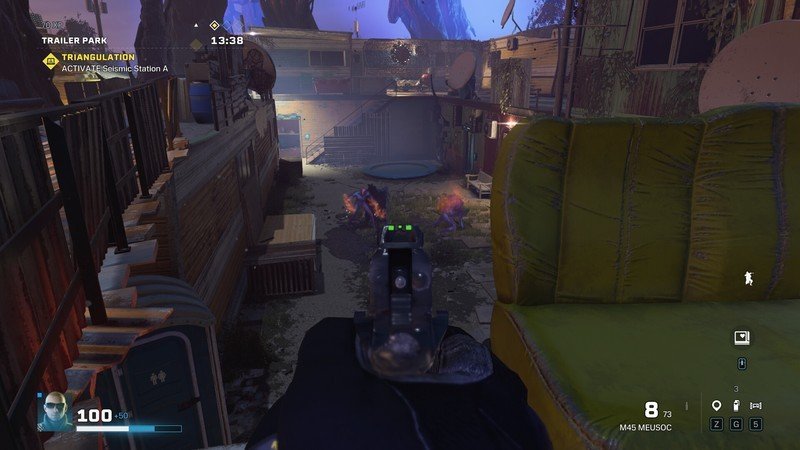
Rainbow Six Extraction borrows a fraction of the playable characters from Siege, with nine Operators available at the start and another nine unlocked by completing milestones, which also unlock new gear, maps, and modes through earning XP. Each Operator has persistent health that carries over from mission to mission, so it would not be wise to use the same Operator twice if badly injured. It's a smart way to get the player to try different characters, but there are gameplay consequences if an operator dies during an incursion.
Operators who are dead by the end of an incursion are labeled as MIA, and the in-game reasoning is that a stasis gel forms a protective barrier over the soldier, and become an objective for the next incursion in that same map. The objective involves playing tug of war with a monstrous tree over the foamy soldier, and being successful will add that specific operator back to the roster. Failing will lose all XP that the incapacitated soldier had earned in the previous incursion. Yhe rescue mission can be avoided if a teammate physically picks the body up at the time of incapacitation, dumps it into the tanning bed-like extraction pod, and successfully extracts.
Get the latest news from Android Central, your trusted companion in the world of Android
The system presents a unique balance of risk and reward... It makes playing both exhilarating and terrifying.
I had two close calls early on where my two teammates were incapacitated before completing the final, third objective. It became my job to be an errand boy, bring each of them to the pod, complete the objective by myself, and extract with very little health. The system presents a unique balance of risk and reward, especially when that XP can be subtracted from your milestones. It makes playing both exhilarating and terrifying.
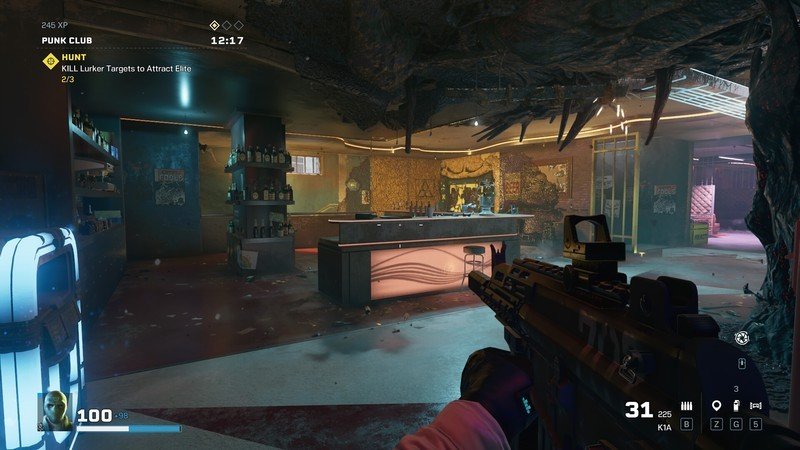
While the moment-to-moment action was exciting, the mission structure became repetitive after a while since there are about a dozen objective types and you could see up to three each time. It was broken up by the increasing variety of enemies, from exploding dog-like creatures to those that could jump into surrounding sludge and pop out as if it were Splatoon. It just wasn't enough when I had to complete the same three maps over and over again until I had enough XP to unlock a new locale.
The Quick Play mode is tied to one of the four difficulty levels, but selecting a specific map will allow you to select more than that locale's standard difficulty level. Unfortunately, the latter option is only available if playing solo or in a pre-made party. Despite the robust ping system and no friendly fire in the lower difficulties, random teammates that were good were also inconsistent, so I was stuck playing the first three maps since I did not want to play the newer maps solo on an easier difficulty.
Trusting Quick Play on higher difficulties led to me rescuing my roster more than I would like to, though that might balance itself out as people play the game more after launch. A pre-made party with mics is probably the best way to experience the game with less frustration.
Rainbow Six Extraction: Stadia performance and features
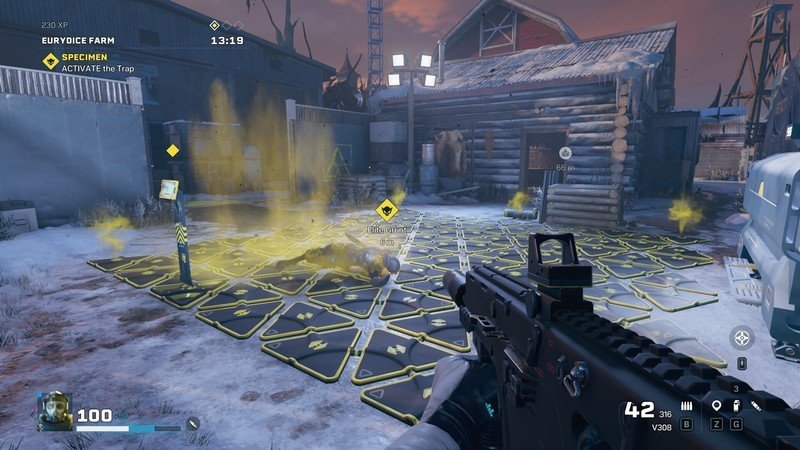
Rainbow Six Extraction on Stadia does not contain any exclusive features like State Share or Stream Connect. Like other Ubisoft games on Stadia, it does support cross-platform multiplayer and saves, so finding players was never an issue and it is nice to know that my save can be easily moved if playing on another platform.
The Stadia version contains both performance and quality modes, where the former focuses on higher framerate while the latter supports 4K resolution. My experience was smooth on the performance mode, though the aiming had a slightly shaky feel that was noticeable at first. However, I got used to the feeling the longer I played since it did not hinder my ability to play. Of course, others' experiences may be different depending on the speed of their internet.
According to my Optimum connection's Speedtest, I had an average download speed of 345Mbps and an average upload speed of 21Mbps. Google recommends at least a 10Mbps download speed for 720p streaming, 20Mbps download speed for 1080p streaming, and at least a 35Mbps download speed for 4K streaming.
I was also annoyed by the Stadia-level notifications telling me that I was connected to game chat at the beginning of each mission, and that voice chat was disconnected when returning to the main menu after every mission ended. The notifications popped up even when no mic was connected and when I was playing solo.
Rainbow Six Extraction: Should you buy it?
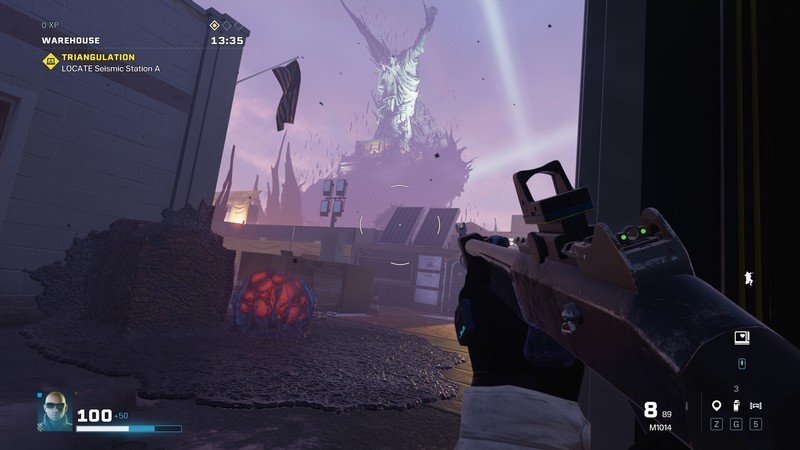
3.5 out of 5
Rainbow Six Extraction is a hard sell at $40. The action is fun, but it can be easy to burn out on the same maps and objectives to get your roster to high enough ranks to tackle the harder difficulties, especially when a team of people you know is necessary to coordinate tactics.
There is also a lack of synergy between both Rainbow Six Extraction and Siege. Players do receive four cosmetic sets to use in both games just from buying the game, and can unlock all 18 Operators for use in Siege. A seasoned player may have already unlocked most, if not all, Operators and it may not be interesting enough for casual players. It is obvious looking at the in-game Extraction store that some of the cosmetics would absolutely not fit into Siege with gaudy, shiny outfits and literal cat heads, but wouldn't it be adding value for Siege players to use their purchased skins in Extraction?
Rainbow Six Extraction may be one of the best Stadia games if the core gameplay loop is enough to satisfy, and you have friends to rely on (or leave you behind devilishly) that play on Stadia or other platforms. Otherwise, the full game is available to play with a Ubisoft+ subscription on Stadia at a much more palatable $18 per month.
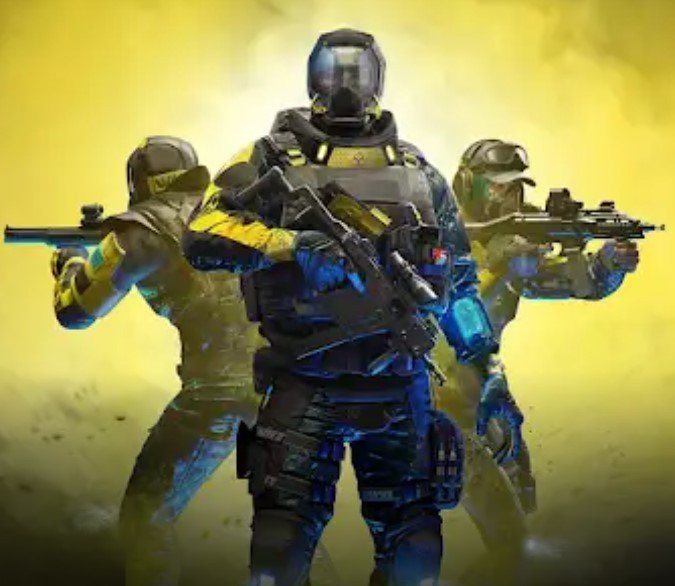
Rainbow Six Extraction on Stadia
Bottom line: Rainbow Six Extraction on Stadia wears out its welcome fast with a lack of variety and requiring a pre-made group to consistently succeed, but the action is gripping with some smart twists on its cast of playable characters.

Thomas Meyer fell in love with video games starting in the mid '90s with a NES, Super Mario Bros., Duck Hunt, and Jack Nicklaus' Greatest 18 Holes of Major Championship Golf. He hasn't stopped and is not planning to anytime soon. Freelance for Android Central and Windows Central.
